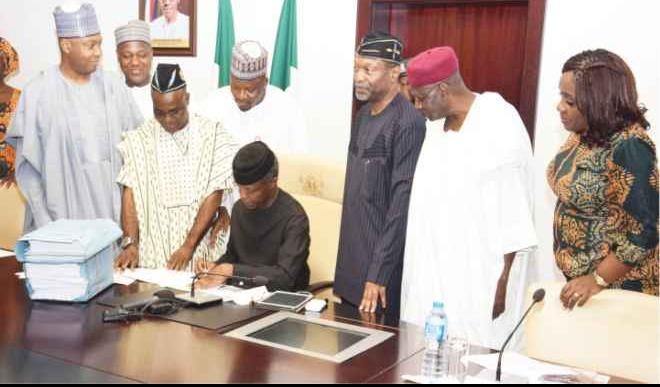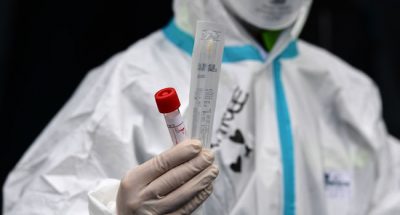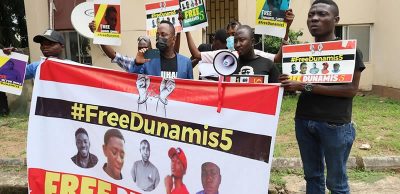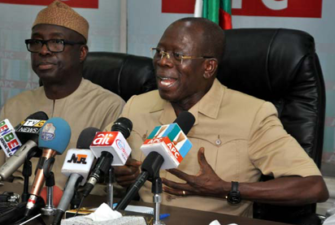Acting President Yemi Osinbajo Monday signed the 2017 budget just in time to avoid a shutdown of government operations by June 30.
The life of the 2016 budget expired in May but the law allows its extension to the end of June.
This is a grace period meant to allow the government and the legislature sort out sticking issues to avoid a shutdown.
Osinbajo signed the fiscal document almost immediately after he was directed by President Muhammadu Buhari to do so. A statement issued by the President’s Senior Special Assistant on Media and Publicity, Mallam Garba Shehu, had stated that the President, in a letter dated June 10, 2017 personally signed by him conveying his directives from London and addressed to the Minister of Budget and National Planning, Senator Udoma Udo Udoma, had indicated that the Acting President should sign the budget in the interest of national economy.
President Buhari, who is currently on leave for medical follow up in London, said he was “pleased by the joint resolution that the Executive would submit next year’s budget proposals by October 2017 and the National Assembly will conclude the Appropriation process by December 2017, so that the country can return to a normal fiscal period from next year onwards.”
In his speech at the signing, the Acting President noted that the process of preparing and processing the budget was much smoother than the 2016 Appropriations Bill.
He said during the budget defence sessions, there were far fewer reported cases of acrimony, or hostile wrangling between the MDAs and the National Assembly committees.
He said the final presentation and the signing of the budget had been considerably delayed largely due to disagreements “we had about the changes introduced to our 2017 Budget proposals by the National Assembly.”
He said the executive took the view that the changes fundamentally affected some of its priority programmes and would make implementation extremely difficult and in some cases impossible.
“The most important being that the leadership of the National Assembly has given us a commitment that the National Assembly will re-instate the budgetary allocations for all the important executive projects, such as the railway standard gauge projects, the Mambilla Power Project, the Second Niger Bridge, the Lagos – Ibadan Expressway etc. which they had reduced to fund some of the new projects they introduced.
“This re-instatement will be by way of an application for virement by the Executive which they have agreed will be expeditiously considered and approved by the National Assembly. It is as a result of that understanding and the outcome of our detailed engagements that we feel able to sign the 2017 Appropriations Bill into law today.” He said the executive and the leadership of the National Assembly had jointly resolved to return to a predictable January to December fiscal year.
“It is a particularly important development because this accords with the financial year of most private sector companies, underscoring the crucial relationship between government and the private sector.”
Osinbajo said the signing of the budget would trigger activities in the domestic economy which would lead to job creation and more opportunities for employment, especially for the youth.
He said the budget is designed to bring the Nigerian economy out of recession unto a path of sustainable and inclusive growth.
The budget has a revenue projection of N5.08 trillion and an aggregate expenditure of N7.44 trillion. The projected fiscal deficit of N2.36 trillion is to be financed largely by borrowing.
“Let me assure those who have expressed concern about the growing public debt that we are taking several actions to grow government revenues as well as plug revenue leakages. This is because, notwithstanding the fact that our borrowings are still within sustainability limits, we are determined, in the medium term, to reduce our reliance on borrowings to finance our expenditures.
“As you are all aware, our economy is already signalling a gradual recovery as growth is headed towards positive territory. First quarter GDP, at -0.52% compares favourably with -2.06% in the first quarter of 2016.
“Inflation is declining – down to 17.24% from 18.74% as at May 2016. Our external reserves are now US$30.28 billion as at June 8, 2017 up from US$26.59 billion as at May 31, 2016.
“We are also gradually instilling confidence in our exchange rate regime. This improvement in GDP growth and other macro-economic indicators is largely attributable to our strategic implementation of the 2016 Budget as well as stronger macroeconomic management and policy coordination.
“I am confident that the 2017 Budget will deliver positive economic growth and prosperity – one that is self-sustaining and inclusive. In this regard, the 2017 budget will be implemented in line with our Economic Recovery and Growth Plan.
“Over the 2017-2020 plan period we are focusing on five (5) key execution priorities, namely:
*Stabilizing the macroeconomic environment;
*Agriculture and Food security;
*Energy sufficiency in power and petroleum products;
*Improved transportation infrastructure; and
*Industrialization through support for micro, small and medium-scale enterprises (MSMEs).
“For instance, we are committing over N200 billion to improve transport infrastructure such as roads and rail; over N500 billion for investments in works, power, and housing; and N46 billion for Special Economic Zone Projects to be set up in each geopolitical zone.
“Our fight against corruption is yielding positive results. Some of the recoveries are included in the 2017 Budget which will be expended on identifiable capital projects.
Already, we are beginning to see some improvement in the quality of public expenditure. This is great motivation for us to remain resolute in our fight against corruption so that economic prosperity is enjoyed by all Nigerians.”
“Our path to progress and abundance is clear. The tools are in place and the resilient, resourceful and hardworking Nigerian people are set to go. I have no doubt that by the grace of God, the bleakness of recession is about to witness the uplifting dawn of abundance,” he said.
The signing was witnessed by many dignitaries including the Senate President Bukola Saraki and House of Representatives Speaker Yakubu Dogara,
Budget needs aggressive implementation – Experts
The Chairman of the Board of the Nigerian Economic Summit Group (NESG) Mr. Kyari Bukar has called for an aggressive implementation of the capital aspect of the budget
“Implementation of the budget needs to be done aggressively especially when it comes to the capital side because whether the budget has been signed or not people have been collecting their salaries,” he said.
“It is better late than never but essentially I wish that as nation we have the discipline of having the budget approved and signed within the first month of a new year where there would be ample time to implement the budget,” Kyari added.
A professor of Economics at the University of Uyo, Professor Leo Ukpong, told the press that although there had been uncertainty in the market due to the delay in the budget assent but now that it has been signed, the markets would react positively in the coming days.
He said the Federal Government must run with the implementation as the delay in the budget process had impacted the markets badly.
“The problem now is looking forward. Signing of the budget would raise the expectations because we are looking for them to inject some funds in the economy. In the short term, the market would probably react positively on that news,” he said.
He cautioned that signing the budget alone will not make a difference in the economy as how long it takes for the government to start appropriating it into the economy is also another factor.
“They need to cut down on administrative delays. They should fund whatever projects they want to do. It will help the economy move forward,” he said. He said delaying the immediate implementation of the budget would also delay the recovery of the economy from recession.
He also lamented the N2.35 trillion deficit in the budget, saying that borrowing may hurt the economy as the country will have to keep servicing the debt.
The N7.44 trillion federal government’s 2017 budget has N5.08 trillion as total revenue with N2.35 trillion as deficit.
The approved budget is N143 billion higher than the N7.298 trillion initially presented to the National Assembly by the federal government.
The capital expenditure is N2.174 trillion and N2.64 trillion as recurrent expenditure while debt servicing is N1.663 trillion.
The budget provides N178 billion for debt servicing, N434 billion for statutory transfers and N350 billion for special intervention. The $44.50 oil price bench mark approved by the National Assembly is less than the $48 a barrel of oil sold in the international market as at yesterday.
The crude oil production projection of 2.2 million barrels per day is about 200, 000 barrels less than the current oil production volume of 2 million barrels per day reported by the NNPC recently.
The budget also pegged exchange rate at N305 per dollar, which is slightly below the current N305.6 official exchange rate as at yesterday.
Also speaking, Rislanudeen Mohammad, the former acting Managing Director/CEO Unity Bank commenting on he signed budget said, “It is good for the economy that finally the budget has been signed into law.
According to him, with the signing of the budget, it “will hopefully fast track release of capital funding to Ministries Departments and Agencies (MDAs), reflating the economy, improved aggregate demand and help accelerate recovery from recession as well as spur economic growth.”
He however advised that Nigeria must run a fast rate to achieve any significant economic growth at the end of 2017.
“We must however run a fast race to be able to achieve GDP growth rate of 2.19 percent in 2017 as projected in the economic recovery and growth plan in view of the fact that Q1 2017 data still remained at negative of -0.52 percent. Going forward, stakeholders must ensure budgets get approved early enough to assure timely implementation” he advised.




